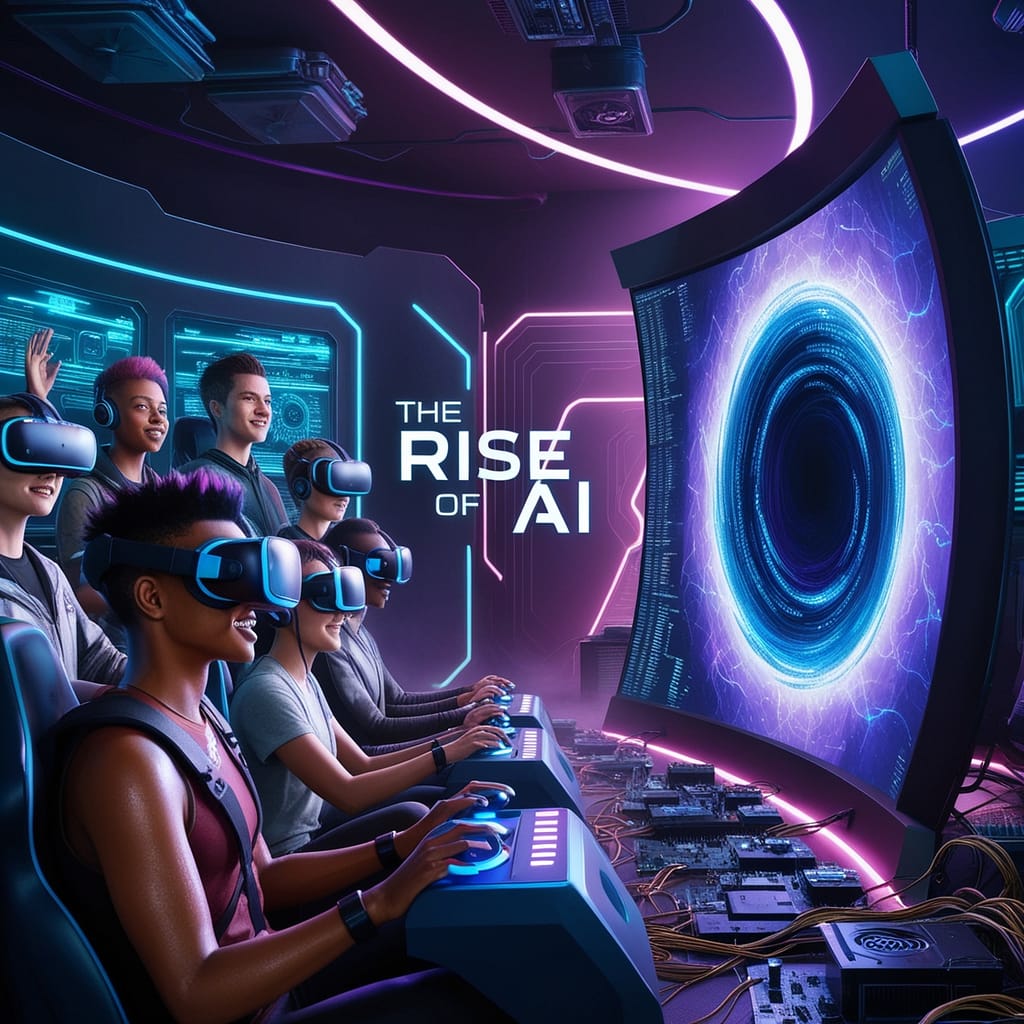Artificial intelligence (AI) has become a transformative force in the gaming industry, influencing every facet of game design, development, and player interaction. As technology advances, the incorporation of AI is leading to richer, more immersive experiences, predicting player behavior, and reshaping the very nature of gaming. Here’s a look at how AI is on the rise and shaping the future of this dynamic industry.
1. Dynamic and Intelligent NPCs
One of the most significant advancements AI has introduced in gaming is the evolution of non-playable characters (NPCs). Traditionally, NPC behavior was scripted and predictable. However, AI allows for the development of intelligent NPCs that can learn and adapt based on player actions. These characters can react dynamically to different strategies, making encounters more unpredictable and engaging.
For instance, AI-driven NPCs in games like Red Dead Redemption 2 exhibit realistic behaviors, such as interacting with the environment and responding to players’ choices, thereby enriching the gameplay experience. As AI technology continues to improve, we can anticipate NPCs that offer deeper dialogues, emotional responses, and unique interactions that enhance storytelling.
2. Procedural Content Generation
AI is revolutionizing the way game worlds are created through procedural content generation. This technique uses algorithms to generate vast, varied environments and quests, ensuring that no two gameplay experiences are the same. By leveraging machine learning, developers can build expansive worlds that adapt in real-time to player behavior and preferences.
Games like No Man’s Sky are prime examples of this technology, creating an almost infinite universe for players to explore. As AI capabilities advance, we can expect even more intricate and diverse landscapes that keep players engaged and encourage exploration.

3. Personalized Player Experiences
The future of gaming is leaning toward personalization, driven by AI analytics. By analyzing player behavior and preferences, AI can tailor gameplay experiences to individual users. This may involve adjusting difficulty levels, suggesting specific quests, or even altering storylines based on player choices.
This personalization not only enhances player satisfaction but also improves retention rates, as players are more likely to stay engaged in a game that feels uniquely suited to their gaming style. As AI continues to refine its understanding of player behavior, we can expect even more tailored gaming experiences that keep players returning for more.
4. Smart Game Testing and Development
AI is streamlining game development processes, particularly in testing and debugging. Traditional testing methods can be time-consuming and labor-intensive. However, AI-driven tools can automatically analyze gameplay for bugs and balance issues, enabling developers to identify and fix problems more efficiently.
Moreover, AI can assist in generating art assets, designing levels, and even composing music, allowing developers to focus on creative aspects. This acceleration in the development cycle not only leads to faster release times but also encourages innovation as teams can experiment with new ideas without the overhead of extensive manual labor.
5. Enhanced Multiplayer Dynamics
In multiplayer gaming, AI is improving matchmaking queues and player interactions. By analyzing player statistics, AI can ensure that users are paired with others of similar skill levels, leading to more balanced and enjoyable matches.
Additionally, AI can monitor player behavior to detect toxic interactions and implement necessary measures to maintain a healthy gaming environment. This proactive approach can foster a more positive online atmosphere, enhancing the overall experience for players.

6. Immersive Virtual and Augmented Reality
The rise of virtual reality (VR) and augmented reality (AR) gaming is also being influenced by AI. Smart AI algorithms can improve object recognition and tracking, creating seamless interactions in these immersive environments.
Future AR and VR games may use AI to enhance simulations, making them more realistic and engaging. Players will find themselves in increasingly lifelike scenarios, bolstered by responsive AI that can dynamically change according to in-game events and player choices.
Conclusion
The rise of AI is undoubtedly reshaping the landscape of gaming, making it more engaging, personalized, and dynamic. From intelligent NPCs to procedural content generation, AI is enhancing every aspect of the gaming experience. As technology continues to advance, we can expect even bolder innovations that will further redefine how we interact with games.
The intersection of AI and gaming heralds an exciting future—one where players are not just participants but active agents in ever-evolving narratives and immersive experiences. 🌟🎮



